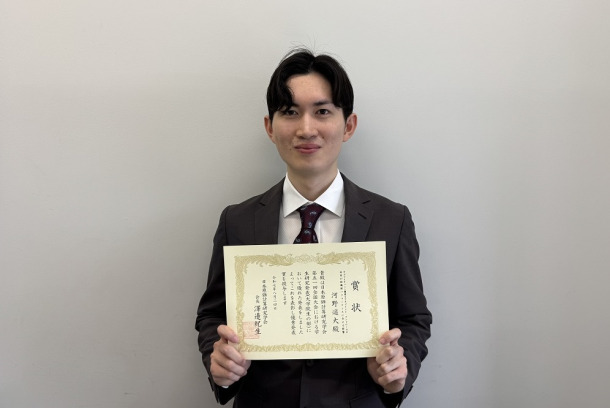
The award certificate I received when I participated in the student presentation session at the Cost Accounting Research Society at Kyoto University.
What is graduate school like? Waseda University currently has 21 graduate schools. In this issue of "Graduate Student's Research!", we take a look at the campus life of Yodai Kono, who is currently working hard researching in the Graduate School of Accountancy. He will share not only the reasons why he decided to go to graduate school, but also the appeal of academics and how he spends his day.
Practical knowledge gained through discussions with classmates and teachers
Yodai Kono, 2nd-year master's student, Graduate School of Accountancy
I am majoring in management accounting at the Graduate School of Accountancy. Management accounting is in-house accounting that provides corporate executives and managers with the information they need to make decisions and control their organizations. Unlike typical graduate schools, our graduate school is a professional graduate school that focuses on accounting education, so practical education, in addition to theory, is an important pillar of our program. As a result, many of my classmates aspire to professional careers at auditing firms, financial institutions, and consulting firms, and not many students aspire to become researchers. However, as I continued to study, I became increasingly attracted to the depth and potential of the academic field of management accounting and gradually began to think about pursuing research in earnest in a doctoral program.
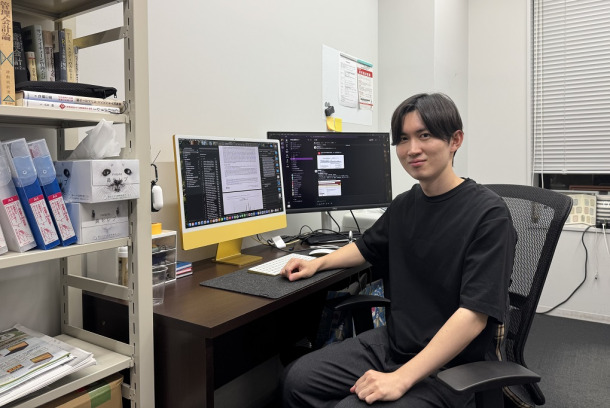
A typical research scene. I am collecting, organizing, and writing literature in a corner of my faculty 's laboratory.
I first became interested in management accounting after being struck by a passage in Professor Takehiro Metoki (Faculty of Commerce)'s book "Dissenting Opinions and Right Opinions: Management Accounting" by Yoshihiro Ito and Takehiro Metoki (Chuo Keizai Publishing). The passage pointed out that, "While theoretically, computational techniques to support decision-making are becoming increasingly sophisticated, surprisingly simple tools are often used in the field." These words resonated with me as I recognized the gap between academia and practice, and the intrinsic appeal of management accounting, which lies in that gap. Experienced in the academic field, which pursues theory while remaining attuned to on-the-job sensibilities, I realized that management accounting is "the study of understanding the intentions of the people and organizations behind the numbers." I believe the practical value and profound appeal of this field lies in its ability to shed light on issues that arise in the closed world of corporate internal information and contribute to society.
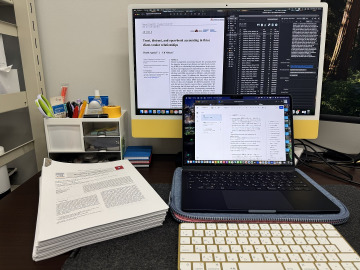
A typical research scene. Because there are so many documents, I use multiple monitors to manage them.
My main area of interest is the "control issue" in relationships with business partners. Until now, management accounting has focused primarily on how to effectively manage one's own internal operations, providing information and tools to support decision-making. However, it is now common for companies to outsource some of their functions and for multiple companies to collaborate on business, making it important to provide information that supports goal achievement across organizational boundaries. In this environment, I am interested in what kind of control can promote collaboration between companies without damaging trust.
In August 2025, I had the opportunity to present my research on the theme of "Using control measures appropriate for supply chain structures to achieve decarbonization goals" at the Cost Accounting Research Society held at Kyoto University. I was nervous at first about presenting on stage, but I received advice from many professors, and it was a valuable experience that helped me further deepen my research.
Our graduate school has a concept of "Accounting + 1," and encourages students to acquire their own strengths in addition to accounting knowledge. My "+1" was the practical knowledge I gained through discussions with my classmates and teachers. Our graduate school is staffed not only by people from the undergraduate program, but also by many working adults with extensive work experience and faculty members with backgrounds in business. One of the great attractions of this program is being able to hear from these people the real voices of those in the field, which at first glance may seem contradictory to theory and cannot be gleaned from textbooks.
In the future, I plan to continue on to the doctoral program at the Graduate School of Commerce which is a researcher training program, and aim to work as a researcher in management accounting. Through my research into inter-company relationships, I will continue to work hard on my research, with the goal of exploring more sustainable and cooperative management methods and proposing a solution to practical issues.
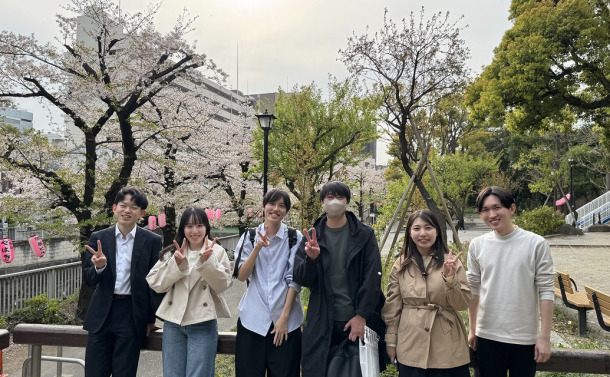
Seminar members enjoying cherry blossom viewing. They go to meals and events together and work together on research as a team (the author is on the far right).
Daily Schedule
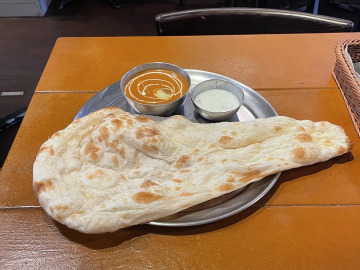
I often visit "Tali-ya," located right outside the north gate of Waseda Campus. (Thank you for staying open until late at night.)
- 08:00 Wake up
- 08:50 Joint seminar with first-year students
- 10:30 Break
- 12:20 Lunch (I often go out to eat Wasemeshi with my seminar members)
- 13:10 Work as a Teaching Assistant (TA) at the School of Commerce
- 18:40 Literature research for writing my master's thesis in the lab
- 19:30 Dinner near the university
- 20:30 Return to the lab and research the literature again
- 22:30 Return home (My house is close to the university, so I study until the university closes)
- 24:30 Go to bed (I relax by reading a novel before bed)

Waseda Campus just before closing time on the day before Earth Thanksgiving Festival in September 2025. Its nighttime appearance is quite different from the lively atmosphere during the day.

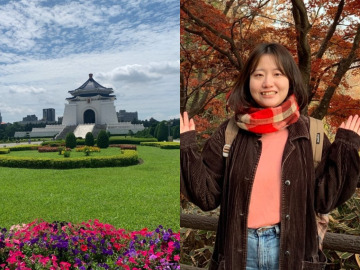
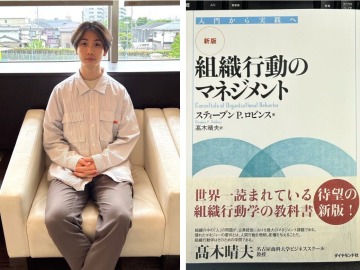
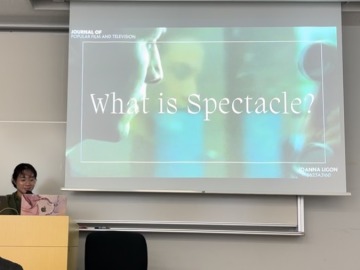
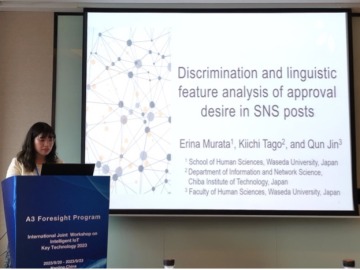

![[Save version] Map of the four main campuses](https://www.waseda.jp/inst/weekly/assets/uploads/2025/09/17cb2975123fc5103172ef60bd98608d-610x458.jpg)

